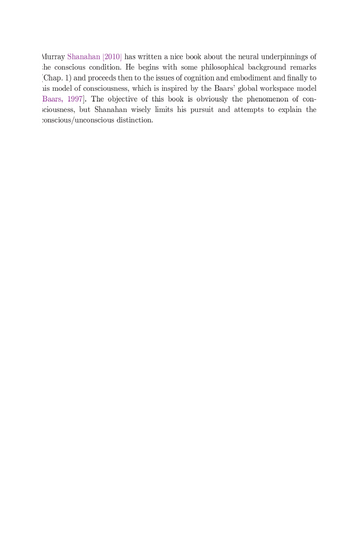S
smcder
Guest
I'm going to have to read this book in its entirety and will probably also be using interlibrary loan. It might, however, be on the shelf in the university library here.
Wiesing refers several times to Richard Shusterman's paper "Beneath Interpretation, Against Hermeneutic Holism," which I read last night. Here's a link and some notes and extracts from it:
"Beneath Interpretation, Against Hermeneutic Holism" | Richard Shusterman - Academia.edu
_
See esp. pp. 190-192*=>193 “…apart from the non-linguistic understandings and experiences of which we are aware, there are more basic experiences or understandings of which we are not even conscious, but whose successful translation provides the necessary background selection and organization of our field which enables consciousness to have a focus and emerge as a foreground. We typically experience our verticality and direction of gaze without being aware of them, but without our experiencing them we could not be conscious of or focused on what we are in fact aware of; our perceptual field would be very different. As Dewey insisted, there is a difference between not knowing an experience and not having it. 'Consciousness … is only a very small and shifting part of experience,' and relies on 'a context which is non-cognitive,' a 'universe of non-reflectional experience'.” n22
“We can never talk (or explicitly think) about things existing without their being somehow linguistically mediated,” but this “does not mean that we can never experience them non-linguistically or that they cannot exist for us meaningfully but not in language. …Neither we nor the language which admittedly helps shape us could survive without the unarticulated background of pre-reflective, nonlinguistic experience and understanding. n23 Hermeneutic holism thus fails in its argument that interpretation is the only game in town because language is the only game in town. For there is both uninterpreted linguistic understanding and meaningful experience that is nonlinguistic."
Shusterman goes on in Section IV of his paper to detail "three reasons for maintaining some distinction between understanding and interpretation" in the ways in which we make sense of the world in which we are embedded.
I'm torn, as I'd like to read Wiesing, but may not be able to get ahold of him ... I can't find any writings on line and our ILL holds are for two weeks, so I could only digest a small part. In the meantime I've been looking at Zizek too ... not necessarily on consciousness, but he is brilliant, reminds me somehow of Nietzsche, I'm not sure how ... as wise as a serpent, as gentle as a dove ... as gentle as a serpent, as wise as a dove ... maybe he recombines into a chimera, a dovpent or a serpove ... a flying snake, at any rate.
Appropos, I've been listening this afternoon to Zizek's "Why Only An Atheist Can Believe" - a talk given to a Christian orgnaization ... I also like the critique of Sam Harris he offers in the talk.
Published on Feb 19, 2015
From Zizek's Book, "The Fragile Absolute" - http://bit.ly/1LexRKl
For some time now, Slavoj Žižek has been showing up as an author and editor of theology texts alongside orthodox thinkers whose ideas he thoroughly naturalizes and reads through his Marxist lens. Take, for example, an essay titled, after the Catholic G.K. Chesterton, “The ‘Thrilling Romance of Orthodoxy'” in the 2005 volume, partly edited by Žižek, Theology and the Political: The New Debate. In Chesterton’s defense of Christian orthodoxy, Žižek sees “the elementary matrix of the Hegelian dialectical process.” While “the pseudo-revolutionary critics of religion” eventually sacrifice their very freedom for “the atheist radical universe, deprived of religious reference… the gray universe of egalitarian terror and tyranny,” the same paradox holds for the fundamentalists. Those “fanatical defenders of religion started with ferociously attacking the contemporary secular culture and ended up forsaking religion itself (losing any meaningful religious experience).”
For Žižek, a middle way between these two extremes emerges, but it is not Chesterton’s way. Through his method of teasing paradox and allegory from the cultural artifacts produced by Western religious and secular ideologies—supplementing dry Marxist analysis with the juicy voyeurism of psychoanalysis—Žižek finds that Christianity subverts the very theology its interpreters espouse. He draws a conclusion that is very Chestertonian in its ironical reversal: “The only way to be an atheist is through Christianity.” This is the argument Žižek makes in his latest film, The Pervert’s Guide to Ideology. In the clip above, over footage from Scorsese’s The Last Temptation of Christ, Žižek claims:
Christianity is much more atheist than the usual atheism, which can claim there is no God and so on, but nonetheless it retains a certain trust into the Big Other. This Big Other can be called natural necessity, evolution, or whatever. We humans are nonetheless reduced to a position within the harmonious whole of evolution, whatever, but the difficult thing to accept is again that there is no Big Other, no point of reference which guarantees meaning.
The charge that Christianity is a kind of atheism is not new, of course. It was levied against the early members of the sect by Romans, who also used the word as a term of abuse for Jews and others who did not believe their pagan pantheon. But Žižek means something entirely different. Rather than using atheism as a term of abuse or making a deliberate attempt to shock or inflame, Žižek attempts to show how Christianity differs from Judaism in its rejection of “the big other God” who hides his true desires and intentions, causing immense anxiety among his followers (illustrated, says Žižek, by the book of Job). This is then resolved by Christianity in an act of love, a “resolution of radical anxiety.”
And yet, says Žižek, this act—the crucifixion—does not reinstate the metaphysical certainties of ethical monotheism or populist paganism. “The death of Christ,” says Žižek, “is not any kind of redemption… it’s simply the disintegration of the God which guarantees the meaning of our lives.” It’s a provocative, if not particularly original, argument that many post-Nietzschean theologians have arrived at by other means. Žižek’s reading of Christianity in The Pervert’s Guide to Ideology—alongside his copious writing and lecturing on the subject—constitutes a challenge not only to traditional theistic orthodoxies but also to secular humanism, with its quasi-religious faith in progress and empirical science. Of course, his critique of the vulgar certainties of orthodoxy should also apply to orthodox Marxism, something Žižek’s critics are always quick to point out. Whether or not he’s sufficiently critical of his communist vision of reality, or has anything coherent to say at all, is a point I leave you to debate.



